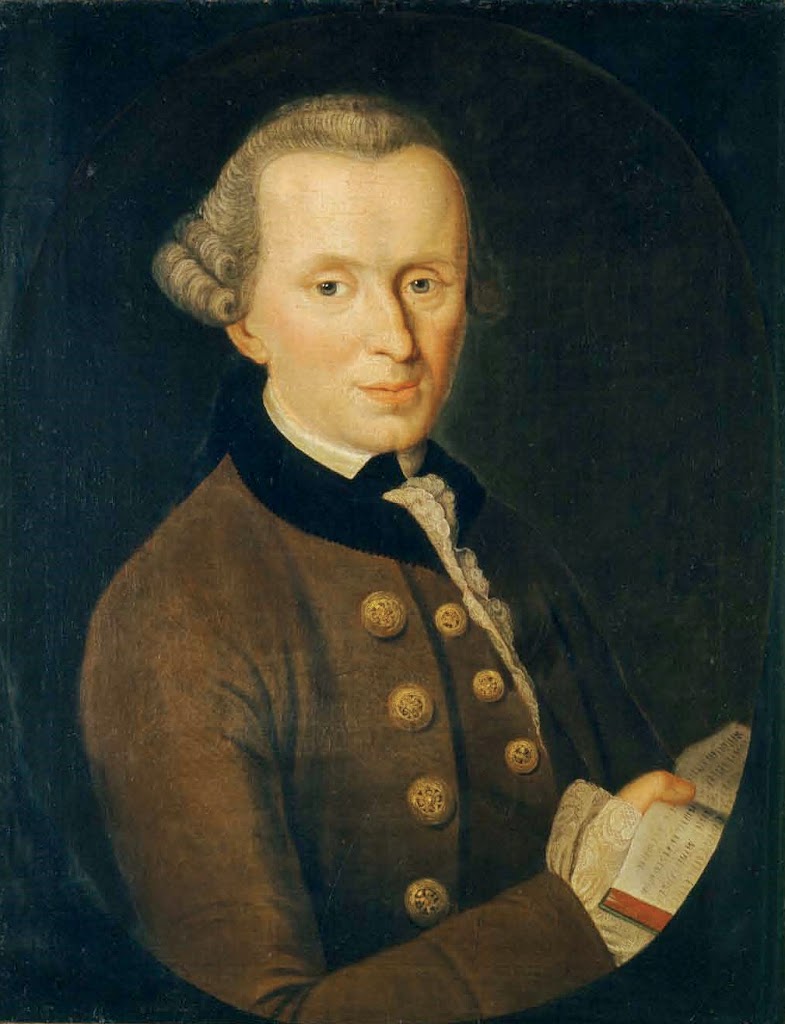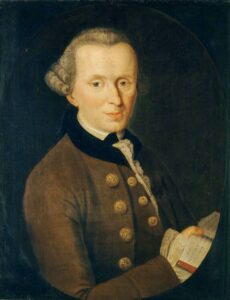Immanuel Kant, one of the most influential philosophers in the history of Western philosophy, profoundly impacted our understanding of epistemology, ethics, and aesthetics. Born on 22 April 1724, in Kaliningrad, Russia, Kant’s meticulous approach to life and thought left an indelible mark on the intellectual landscape.
Kant was the fourth of nine children in a modest family. His father, Johann Georg Kant, was a harness maker, and his mother, Anna Regina Reuter, was known for her pietism and devotion to her children’s education. He attended the Collegium Fridericianum, where he received a solid grounding in the classics. He later joined the University of Königsberg (Albertina) and studied philosophy, mathematics, and the natural sciences.
Kant built his academic career as disciplined as his personal life. After graduation, he worked as a private tutor before returning to academia. He became a professor at the University of
Königsberg, where he taught for the remainder of his career. Kant followed a daily
routine that was so regular that locals would set their clocks by his daily walks.
Critique of Pure Reason
Published in 1781, Critique of Pure Reason is Kant’s magnum opus. This work revolutionized philosophy by addressing the relationship between human experience and reality. Kant argued that while our knowledge begins with experience, not all knowledge arises from experience. He proposed that the mind plays an active role in structuring experiences, introducing the concepts of a priori (knowledge independent of experience) and a posteriori (knowledge dependent on experience).
Critique of Practical Reason and Critique of Judgment
Kant followed up with Critique of Practical
Reason (1788) and Critique of Judgment (1790). The former laid the groundwork
for his moral philosophy, emphasizing duty and the categorical imperative,
which dictates that one should act only according to maxims that can be
universalized. The latter bridged the gap between his epistemology and ethics,
exploring aesthetics and teleology.
Immanuel Kant’s Contributions to Society
Epistemology: Kant’s work in epistemology paved the way for later philosophers, such as Hegel and Schopenhauer, and continues to influence contemporary thought in cognitive science and philosophy.
Ethics: His deontological ethics, particularly the concept of the categorical imperative, remains a cornerstone of moral philosophy and has influenced modern human rights and ethical
theories.
Aesthetics: Kant’s exploration of beauty and the sublime has profoundly influenced art theory and criticism, impacting the Romantic movement and beyond.
Interesting Facts and Unpopular Incidents
Kant was known for his extreme punctuality and rigid schedule. His daily routine included waking up at 5 a.m., lecturing and writing until dinner, and taking a walk at precisely 3:30 p.m. His neighbours famously joked that they could set their clocks by his walk.
Kant never married, dedicating his life entirely to his work. Despite his lack of a family, he was known for his hospitality and often entertained guests with intellectual conversations over
dinner.
In 1794, Kant faced opposition from the Prussian government over his religious views. His writings in Religion within the Bounds of Bare Reason were seen as undermining religious orthodoxy. King Frederick William II issued a decree forbidding Kant from writing or teaching
on religious subjects. Kant followed the orders until the king died in 1797, after which he resumed his work on religion.
Kant credited Scottish philosopher David Hume with awakening him from his “dogmatic slumber.” Hume’s empiricism and skepticism about causation prompted Kant to rethink the
foundations of knowledge, ultimately leading to his critical philosophy.
Legacy of Immanuel Kant
Immanuel Kant died on 12 February 1804, in Königsberg. His legacy endures through his immense volume of work, which continues to be studied and revered. Kant’s philosophy challenges us to consider the nature of knowledge, the basis of morality, and the beauty of the
world around us. His contributions have laid the groundwork for countless philosophical debates and advancements, cementing his place as a pivotal figure in the history of thought.
Immanuel Kant’s life and work exemplify the power of rigorous thought and disciplined inquiry. From his groundbreaking Critique of Pure Reason to his meticulous daily routine, Kant’s influence is undeniable. His ideas continue to resonate, offering profound insights into the
human condition and the nature of reality. As we reflect on his legacy, we are reminded of the enduring importance of philosophy in understanding our world and ourselves





